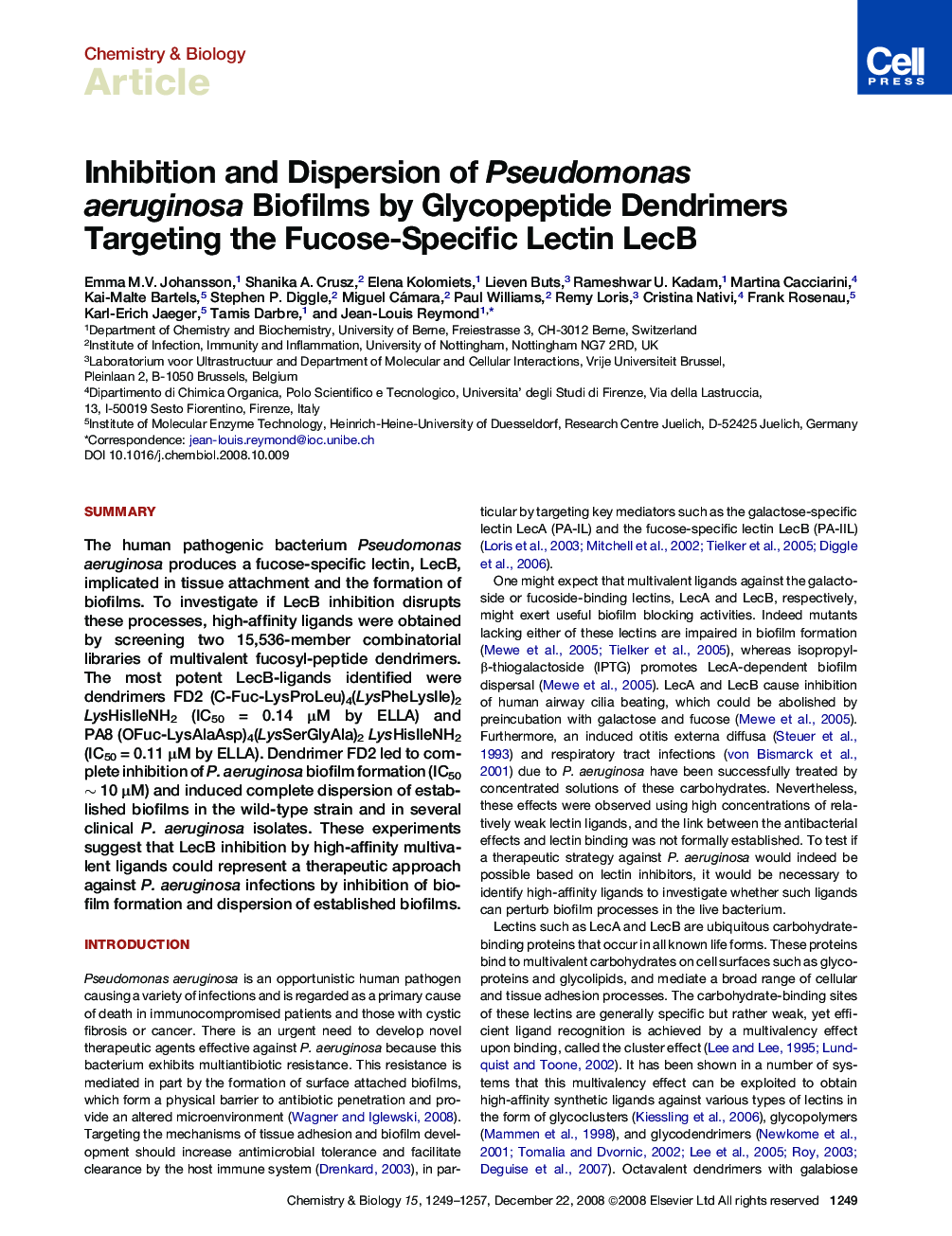| Article ID | Journal | Published Year | Pages | File Type |
|---|---|---|---|---|
| 1392688 | Chemistry & Biology | 2008 | 9 Pages |
SummaryThe human pathogenic bacterium Pseudomonas aeruginosa produces a fucose-specific lectin, LecB, implicated in tissue attachment and the formation of biofilms. To investigate if LecB inhibition disrupts these processes, high-affinity ligands were obtained by screening two 15,536-member combinatorial libraries of multivalent fucosyl-peptide dendrimers. The most potent LecB-ligands identified were dendrimers FD2 (C-Fuc-LysProLeu)4(LysPheLysIle)2LysHisIleNH2 (IC50 = 0.14 μM by ELLA) and PA8 (OFuc-LysAlaAsp)4(LysSerGlyAla)2LysHisIleNH2 (IC50 = 0.11 μM by ELLA). Dendrimer FD2 led to complete inhibition of P. aeruginosa biofilm formation (IC50 ∼ 10 μM) and induced complete dispersion of established biofilms in the wild-type strain and in several clinical P. aeruginosa isolates. These experiments suggest that LecB inhibition by high-affinity multivalent ligands could represent a therapeutic approach against P. aeruginosa infections by inhibition of biofilm formation and dispersion of established biofilms.
